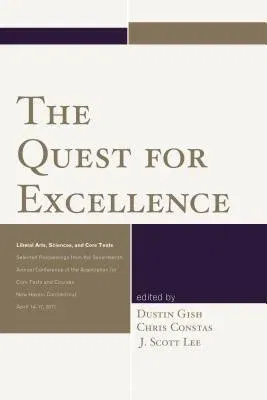Liberal education aspires to excellence through the cultivation of free
human beings who excel in thought, word, and deed. But what exactly is
excellence, and why do we admire it? How do we conceive of what is
excellent? What constitutes excellence-either for human beings, or in
the realms of philosophy, literature, science, and politics? Why is
excellence an aim of liberal education? What kinds of texts, courses,
and inquiries contribute to achieving this end? Such questions animate
the studies herein. The essays in this volume reflect on the idea of
excellence embedded within core texts, as well as how such texts
influence and ennoble higher education. In its chapters, we consider
rival forms of excellence from ancient Greece and Rome, through modern
Europe and America, and beyond. The world of antiquity and its accounts
of excellence, as represented in the works of Euripides, Aristotle,
Plato, Archimedes, and Cicero, are here brought into dialogue with
diverse modern perspectives on excellence, as articulated by
Shakespeare, Descartes, Newton, Locke, Rousseau, Kant, Austen, Darwin,
Lincoln, Tennyson, and Nietzsche, as well as (more recently) by John
Dewey, Martin Luther King Jr., Cardinal Newman, and Eboo Patel. Our
desire to seek and understand excellence transcends borders, and the
purpose of this volume is to help perpetuate in contemporary higher
education the study of core texts essential to the cultivation of
excellence in the liberal arts and sciences.


